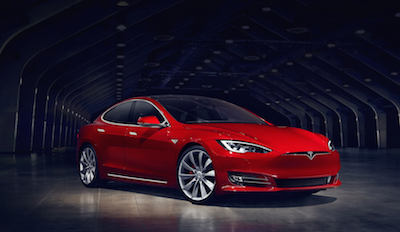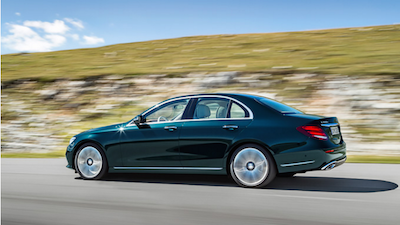Automotive shoppers begin research interested in brand reputations, but make purchase decisions on more practical matters, according to a report from Jumpstart Automotive Group and Ipsos Connect.
Good value, a reputation for being strong and reliable and a reputation for excellent quality are the top three concerns initially, but quality/reliability, mileage and pricing are ultimately the biggest influencers. However, these numbers differ noticeably among different demographics, and brands need to vary their value proposition according to target market.
“Shoppers are very price and value conscious, and both play an integral role in the decision-making process,” said Libby-Murad Patel, vice president of strategic insights and analytics for Jumpstart Automotive Group. “In our research, we found that ‘good value for the money’ is a top must-have and is the primary trust-related concern consumers have with dealerships.”
For “Today’s Auto Shoppers: How They Research and Why Trust is So Essential in Winning Them Over,” 1,014 United States adults who have purchased a vehicle in the past year were surveyed to discern trends in automotive purchasing and differences among key demographics.
Demographic differences
According to Navigant’s research, a majority of shoppers –including luxury shoppers – have a general idea of what they want when they begin the purchase journey, generally having three brands, two body styles and three models in mind.
These initial contenders are based largely on what “catches their eye” on the road or on TV commercials and via word of mouth. When they begin researching, however, the Internet dominates.

Still from Lexus’ “Beautiful Contrast”
Consumers rely in roughly equal portions on dealer sites, Google searches and auto research sites, with “Consumer Reports” and OEM sites following.
Despite their usage rates, many consumers expressed skepticism of the information on a manufacturer’s site, claiming that they need third party sites to get a realistic idea of issues associated with a particular model. Dealer, brand and OEM sites are primarily used to find deals and pricing information.
Among all demographics and income levels, BMW, Mercedes-Benz and Porsche are considered the top luxury brands, with Audi, Lexus and Cadillac also showing well. Interestingly, affluent consumers are significantly more likely to consider Audi and Tesla as luxury brands than non-affluents, likely a testament to an exactingly segmented marketing mix.
As the research shows, different demographics have different concerns and thus respond discretely to advertising.
Women now influence 80 percent of vehicle purchases. On the whole they are more concerned with price than men are, meaning that competitively priced vehicles could gain an edge by marketing more directly to women.
Women are also high-information voters and more likely to consult “Consumer Reports,” and focus on practical elements such as warranty and mileage. While TV commercials often focus on creating desire, brands should target women with transparent, high-information ads.
“We heard a number of women in our focus groups say that they have worked hard, raised their children, held a career and now they’re at the point that they feel like they deserve something more luxurious,” Ms. Patel said. “Similarly, we heard parents in general talk about waiting to buy a luxury vehicle until their kids were a little bit older so that they could maintain it and enjoy it more.”
Asian-American and Hispanic consumers, meanwhile, are more interested in electric- and hybrid-vehicles than other demographics. Both demographics, but especially Asian-Americans, put more stake in brand reputation.
Asian-American consumers are also least trusting of dealerships they purchase from and least likely to use magazines and newspapers.
Consumer retention
Although online media is the most frequently used platform for research, automakers should think twice before stopping the literal presses.
Even as digital mounts a speedy takeover of the marketplace at various points of the purchase journey, brochures still have a place in the automotive world, according to a Foresight Research study.
A brochure influenced the same proportion of buyers in 2015 as in 2008, and the same percentage preferred to pick one up in person as opposed to finding it online. Understanding the significance of what may seem to be an outdated marketing tool can help brands reach consumers (see story).
Luxury automakers also need to improve their vehicle initial quality, otherwise they risk losing today’s customers to competitors in the future.
Non-premium brand automobiles have higher-quality new vehicles than their premium counterparts.
While premium brands averaged 108 problems per 100 vehicles within the first three months of ownership, non-premium brands averaged 104. Initial quality is correlated with repeat business, suggesting that luxury brands should get back to basics and improve quality control before proceeding to make sales (see story).
“Throughout the study, we found that demographics have different priorities, styles of researching and expectations,” Ms. Patel said. “What this means for dealers is that customization of deals, and the way in which the customer relationship is cultivated, must be unique for each demographic, as much as possible.
“It’s no longer enough to treat demographics uniquely once they’re in the showroom, but by understanding the priorities and factors that influence these shoppers before they even get to the dealership,” she said.
“Dealers must approach each demographic uniquely during the research and shopping phase, as well. This can greatly impact your digital marketing strategies in both media and messaging.”
from
http://redirect.viglink.com?u=http%3A%2F%2Fredirect.viglink.com%2F%3Fu%3Dhttps%253A%252F%252Fwww.luxurydaily.com%252Fdemographic-differences-should-shape-automotive-advertising-strategies-report%252F%26key%3Dddaed8f51db7bb1330a6f6de768a69b8&key=ddaed8f51db7bb1330a6f6de768a69b8



No comments:
Post a Comment